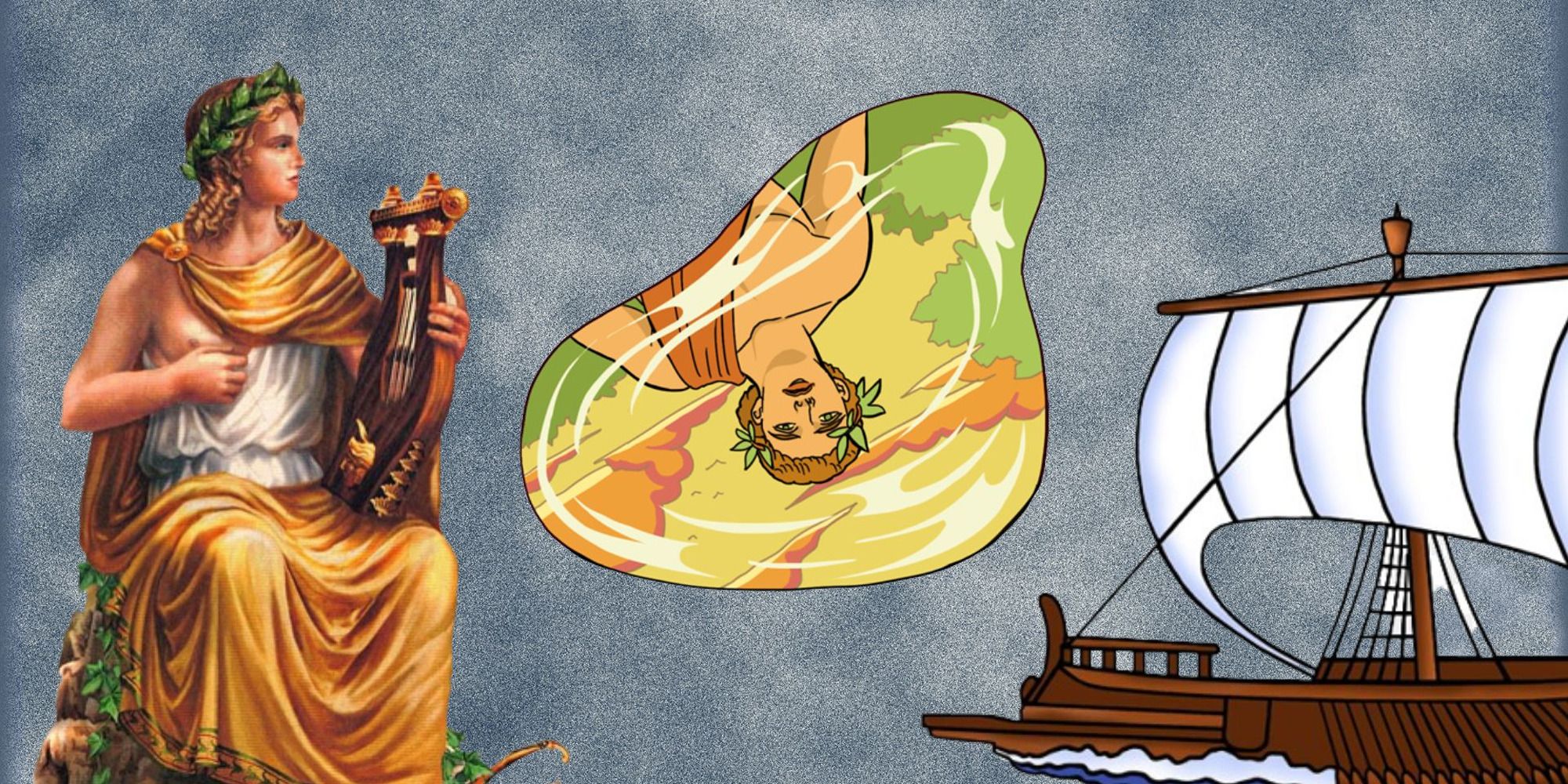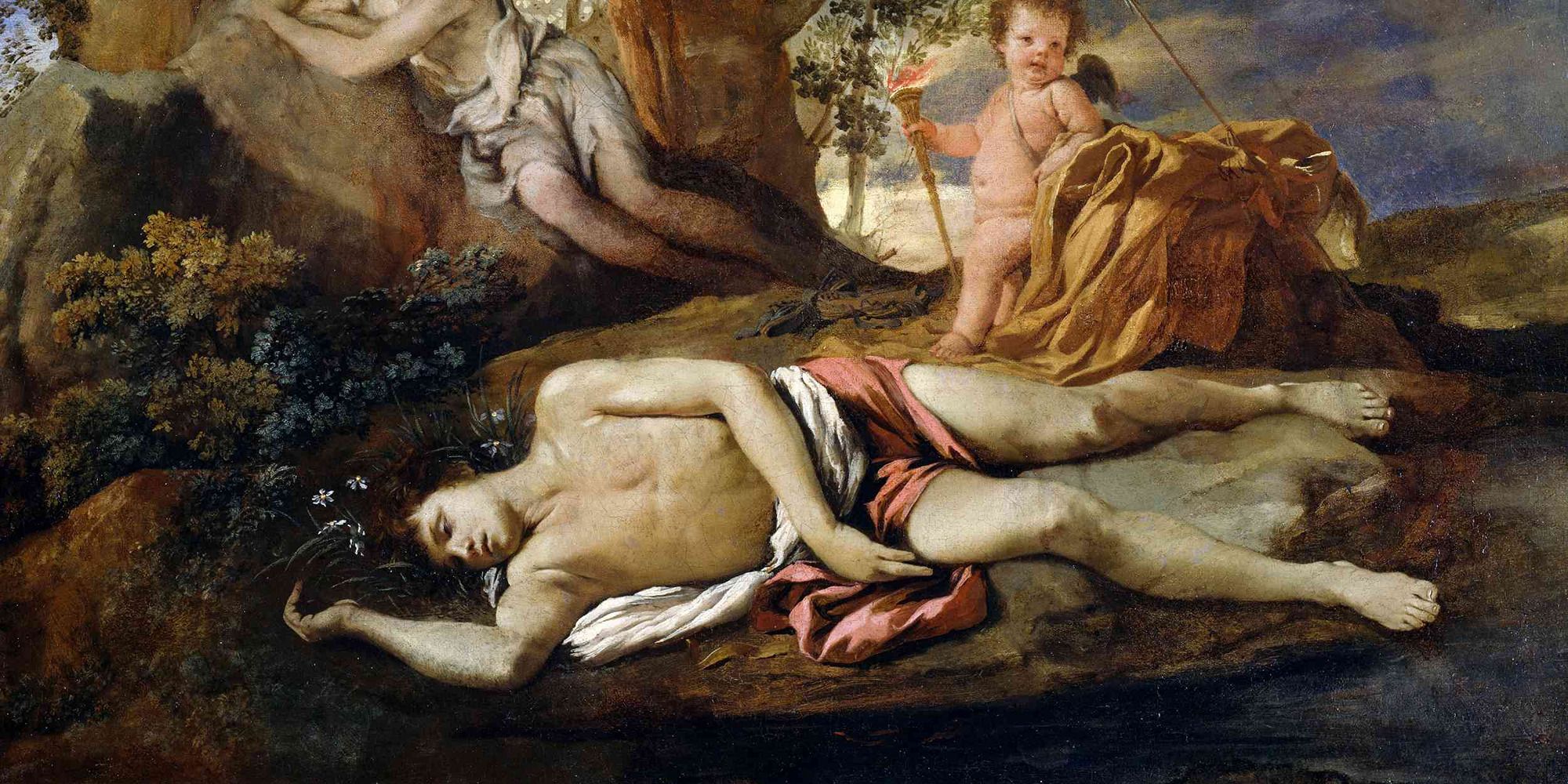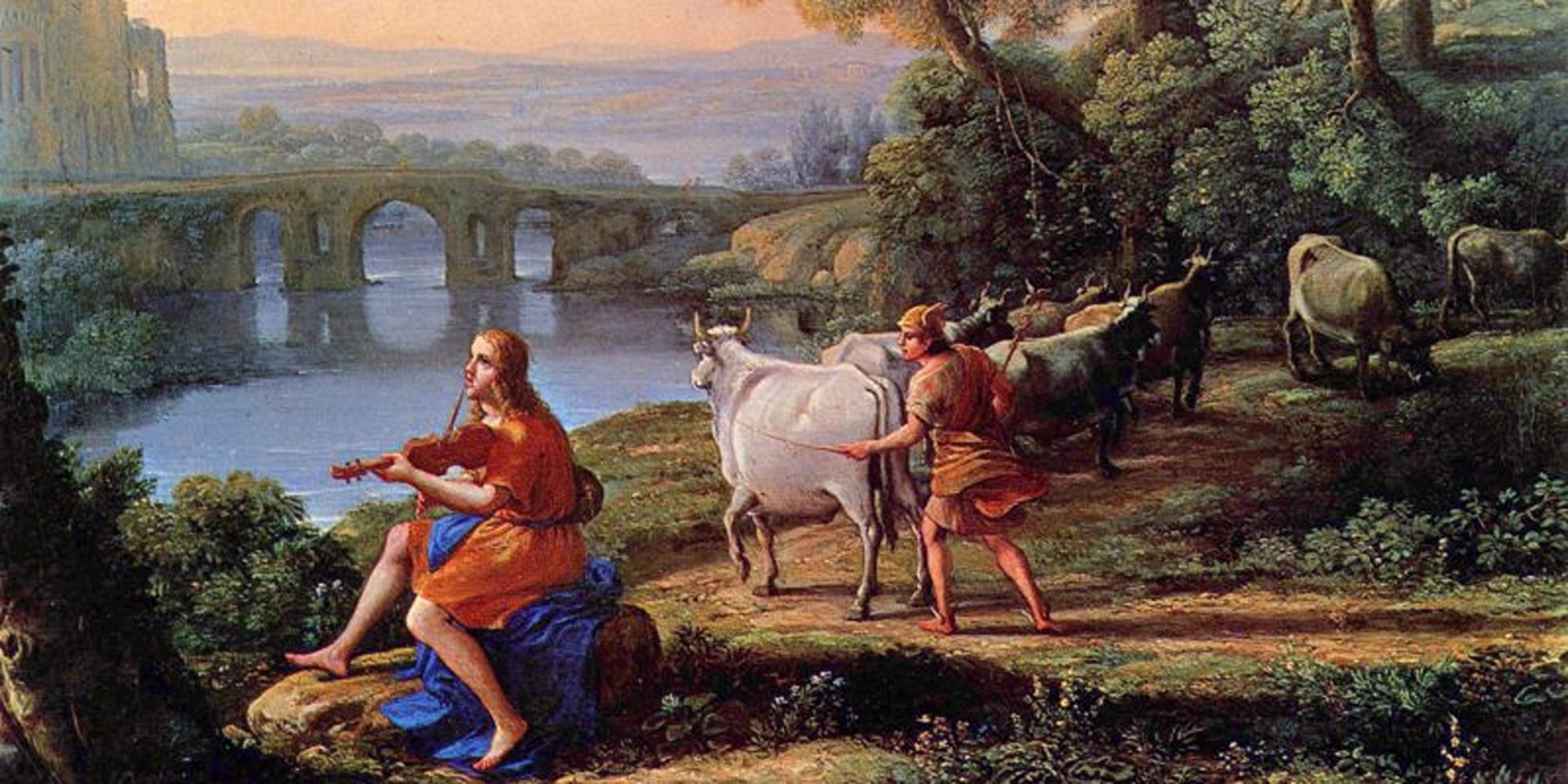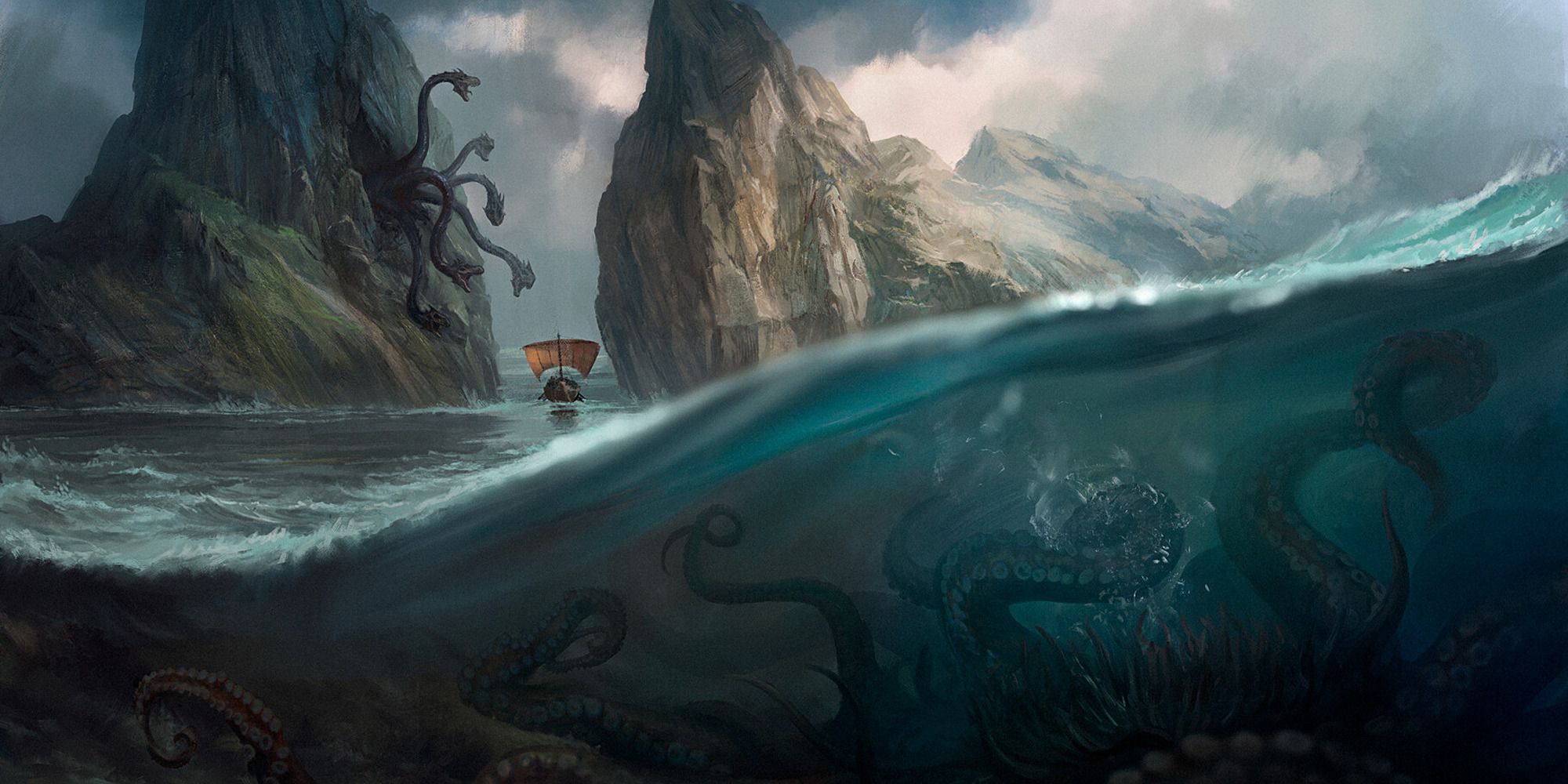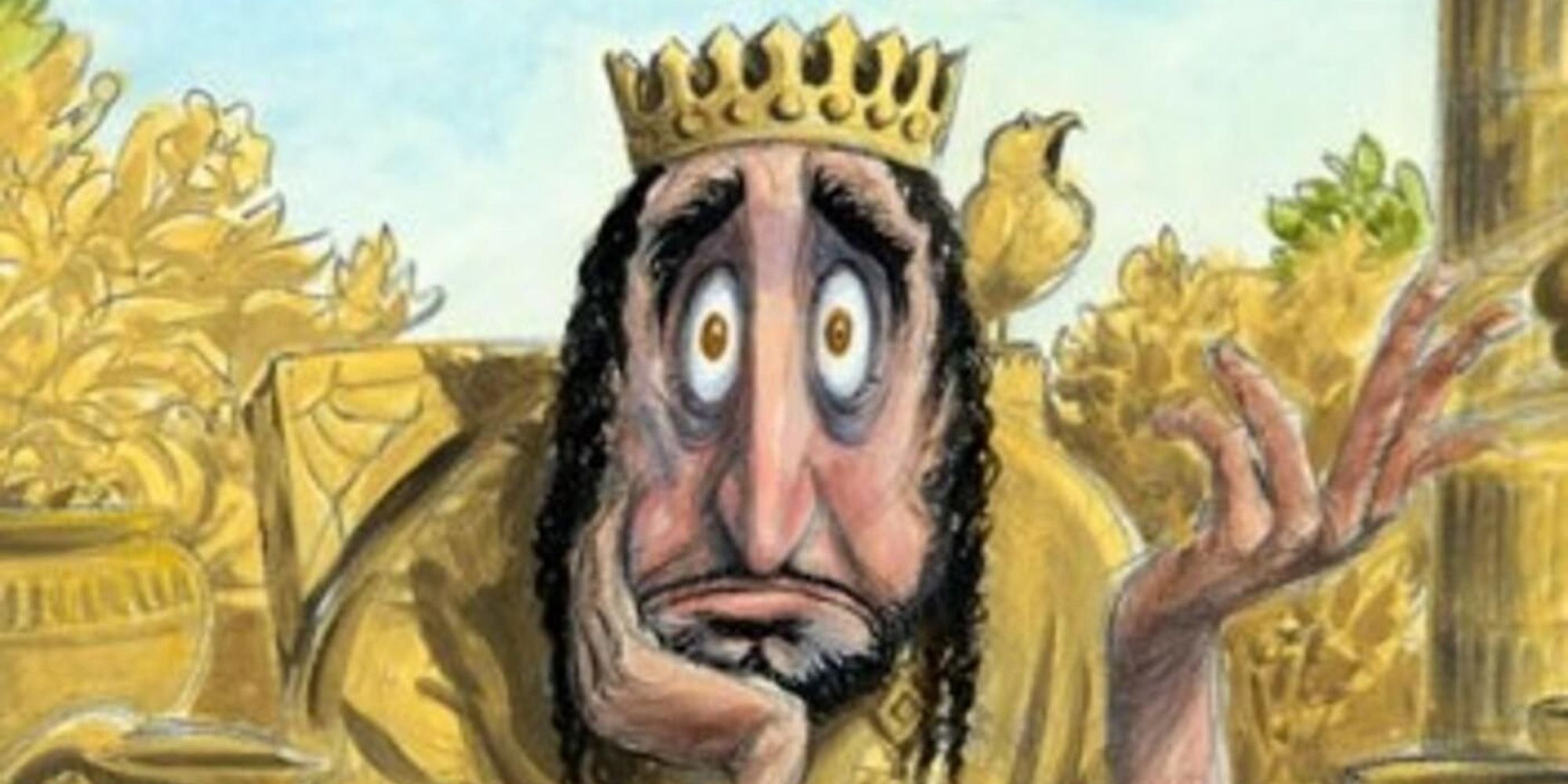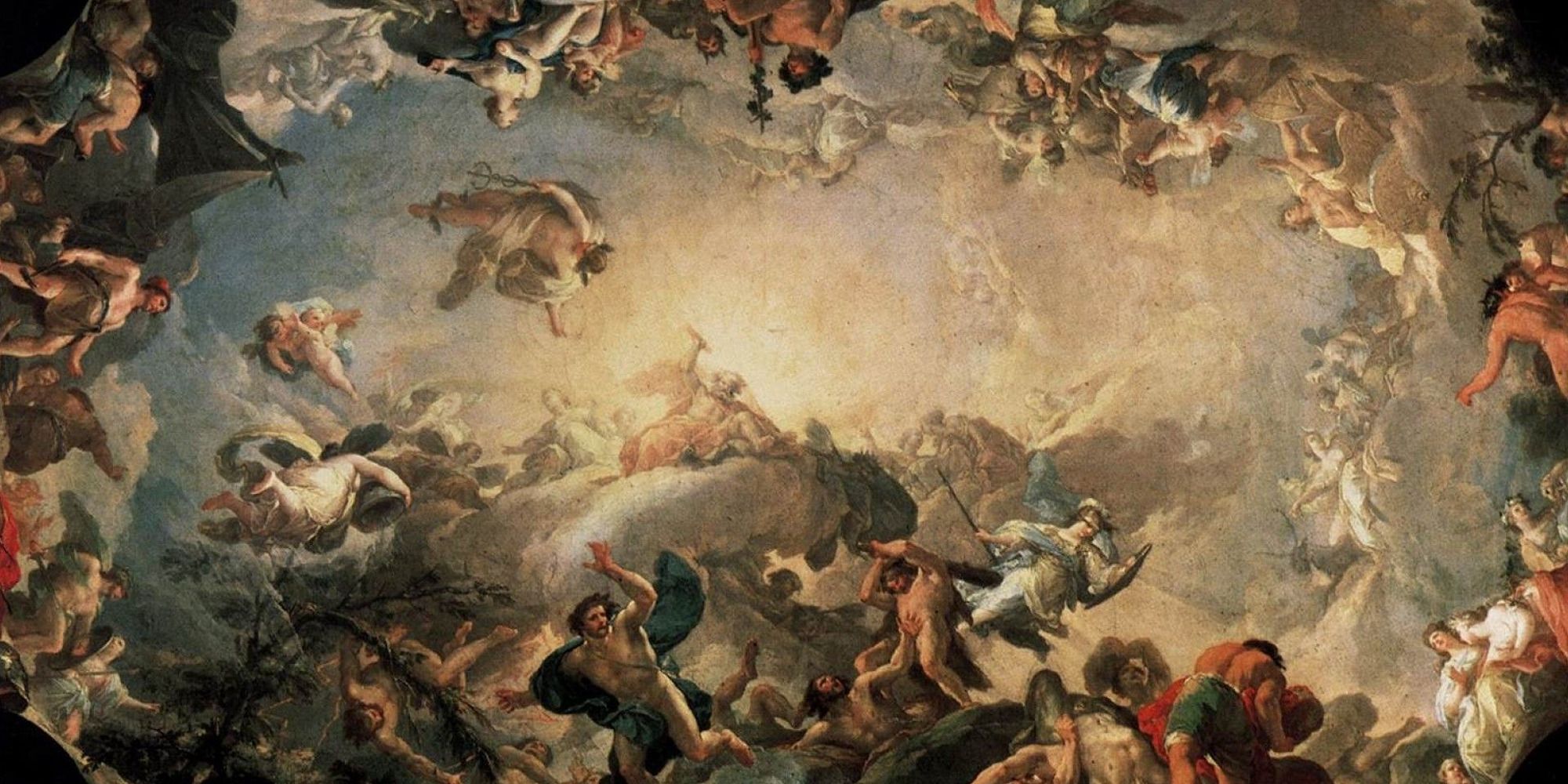Intricately complex and full of memorable characters, Greek mythology has become a common source of stories for those who make movies and television. It’s no wonder since it’s a collection of tales rich in meaning and wisdom.
Adaptations of Greek myths go from campy action TV shows like Xena: Warrior Princess to beloved animated classics like Disney‘s Hercules. Even with all these iterations of classic stories, many Greek myths desperately call for a modern adaptation, whether in a film or a show.
Love and Obsession — Echo and Narcissus
Echo, a beautiful and talkative nymph, made the mistake of helping Zeus hide one of his countless love affairs from his wife, Hera. As punishment, Hera cursed Echo with only being able to repeat the last words spoken by someone else. Echo fell in love with Narcissus, who lacked any kind of empathy, and fell in love with his own reflection.
The story, one of the most popular in Greek mythology, examines the limits of love and the dangers of obsession. It could make for a devastating film about unrequited love and the pain that it can bring.
The Lovers That Challenged the Gods — Alcyone and Ceyx
Alcyone, daughter of the Greek god of the wind, was the devoted wife of the righteous King Ceyx of Trachis. They were so beautiful and happy that they often called each other Zeus and Hera, which enraged the gods. In punishment, Zeus had Ceyx drown. After discovering this, Alcyone followed her husband to the land of the dead. Moved by this tragedy, Zeus turned the lovers into the first kingfisher birds.
A romantic film about these lovers who couldn’t be kept apart even by death could be quite beautiful in the hands of a good director. Seeing someone like James Camerontapping into the spirit of Titanicto tell this tender but tragic romance full of emotion and potentially eye-catching moments of suspense would be quite interesting.
The Price to Pay for Pride — The Tragedy of Tantalus
Son of Zeus and king of Mount Sipylus, Tantalus was so loved by the gods that he was often invited to Olympus for divine feasts. But one day, he abused his position by stealing ambrosia (the food of the gods) and gifting it to mortals. Enraged, the gods threw Tantalus into the Underworld in a state of perpetual hunger, with a branch full of fruit hanging over his head, disappearing every time he tried to touch it.
There would be many ways to make an interesting adaptation of this myth. Perhaps a historical epic film about pride and risk-taking, or a miniseries that showed the gods’ love of Tantalus and the significance of his mistake.
The Mystery of Death — Apollo, Admetus, and Alcestis
After being banished from Olympus and condemned to a period of mortality, Apollo chose to serve King Admetus of Pherae. After becoming fond of him, he decided to help him marry the love of his life, Alcestis. However, Admetus was destined to die young. Apollo got the Fates to spare him on the condition that someone died in his place, and Alcestis sacrificed herself. Fortunately, though, Heracles (better known by his Roman name, Hercules) helped bring Alcestis back to life.
A TV show chronicling the friendship of Apollo and Admetus, the courting of Alcestis, Apollo’s efforts to save Admetus, and Heracles’s quest to save Alcestis would make for an epic and deeply compelling story about friendship, love, and loyalty.
Between a Rock and a Hard Place — The Challenge of Scylla and Charybdis
There have been numerous adaptations of Homer‘s epic poem The Odyssey, such as the Coen brothers‘ O Brother, Where Art Thou? or Theodoros Angelopoulos‘s Ulysses’ Gaze. But the story of how Odysseus and his crew, in their journey, had to choose whether to go through Scylla or Charybdis, two equally dangerous alternatives, deserves a film of its own.
It was said that Scylla and Charybdis were so close together that no ship could avoid both. This dilemma, present not only in The Odyssey, could make for a fascinating narrative exploring the struggle of choosing between two horrible options.
Loving Someone Who Hates You — Apollo Stalking Daphne
In this myth, Eros (the god of love) punishes Apollo for having mocked him by causing him to fall in love with the nymph Daphne and causing Daphne to hate Apollo eternally. The god relentlessly pursues Daphne despite her best efforts to avoid him.
A film about this event could be a fascinating study of free will, toxic masculinity, and gender dynamics, especially considering how some versions of the myth paint Daphne as a chaste tomboy who rejects the idea of marriage.
Touch of Gold — King Midas
King Midas of Phrygia had a blessed life. He lived in luxury and had a beautiful daughter. And yet, he felt unhappy because he didn’t have enough gold. One day, the god Dionysus offered to grant him any wish. Greedy, Midas asked for everything he touched to become gold, unaware that this would mean he could never have food, drink wine, or hug his daughter again.
This beautiful story is a condemnation of greed and of failing to value the good things in life. Eventually, Midas atones for his mistake and becomes a more generous person. Just picture what a director like Martin Scorsese, who has proved to have a knack for telling these kinds of narratives, could do with the material.
The Poster Boy of Existentialism — Sisyphus
Sisyphus was the founder and king of Ephyra. Avaricious and deceitful, he managed to cheat death twice. As punishment, Zeus forced him to an eternity of rolling a heavy boulder up a hill, only for it to roll back down once close to the top every single time.
This story came to represent the absurdity of human existence and the mundanity of seemingly pointless tasks. Such a concept called the attention of French philosopher Albert Camus, who wrote an essay about humans’ struggle against the absurdity of life, taking the myth of Sisyphus as the foundation. Existentialist filmmakers Daniel Scheinert and Daniel Kwancould make something extraordinary by directly adapting this story. In fact, their movie Everything Everywhere All At Oncetakes heavy inspiration from Camus’s The Myth of Sisyphus.
Flying Too Close to the Sun — Daedalus and Icarus
One of the most famous Greek myths, this tale is about Daedalus, a man who built a giant labyrinth, and how he’s locked inside his own creation with his son Icarus. He crafts wings made of wax and feathers for him and his child to escape, but Icarus flies so close to the Sun that his wings melt, and he plummets to his death.
This would be the perfect story for an epic TV show spanning multiple seasons. It could cover Daedalus’s creation of the Labyrinth, how he was imprisoned, his escape, and how he copes with Icarus’s death. This could be a thrilling and emotional series about fate, man’s smallness, the dangers of hubris, and eventually about grief and pain.
A Godly Epic for the Ages — The Titanomachy
The story of the gods’ war on the titan Cronos is one of the most epic and well-known tales in Greek mythology, so it’s anyone’s guess as to why it hasn’t been adapted into a vast and grandiose TV show or movie franchise.
There are a lot of stories to cover. Cronos’s war against his father Uranus, the birth and upbringing of Zeus, and the eventual Titan War. A good writing and directing team could turn this into a monumental tale about generational trauma, bravery, and heroism. The battles would be quite a spectacle to behold, and the complex family drama would be fascinating. Get to work, Hollywood!
























































![Key Metrics for Social Media Marketing [Infographic] Key Metrics for Social Media Marketing [Infographic]](https://www.socialmediatoday.com/imgproxy/nP1lliSbrTbUmhFV6RdAz9qJZFvsstq3IG6orLUMMls/g:ce/rs:fit:770:435/bG9jYWw6Ly8vZGl2ZWltYWdlL3NvY2lhbF9tZWRpYV9yb2lfaW5vZ3JhcGhpYzIucG5n.webp)


